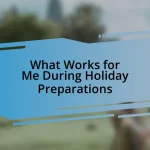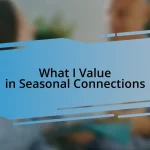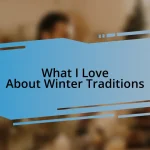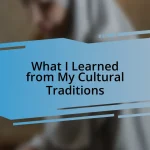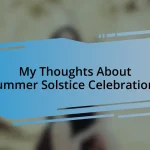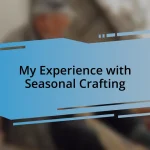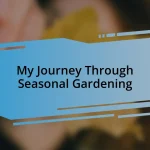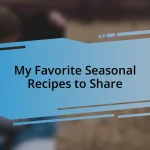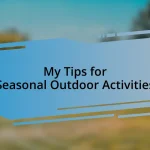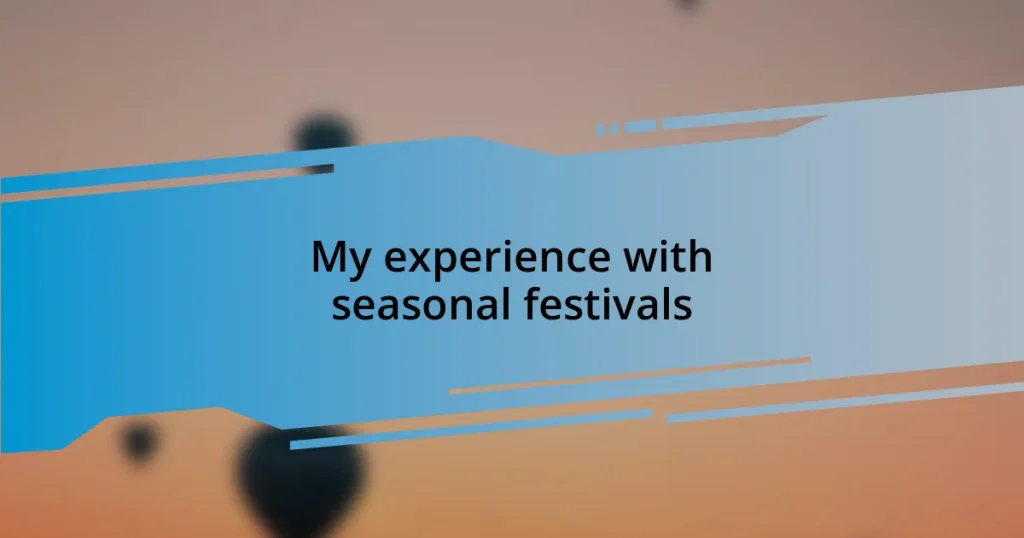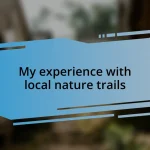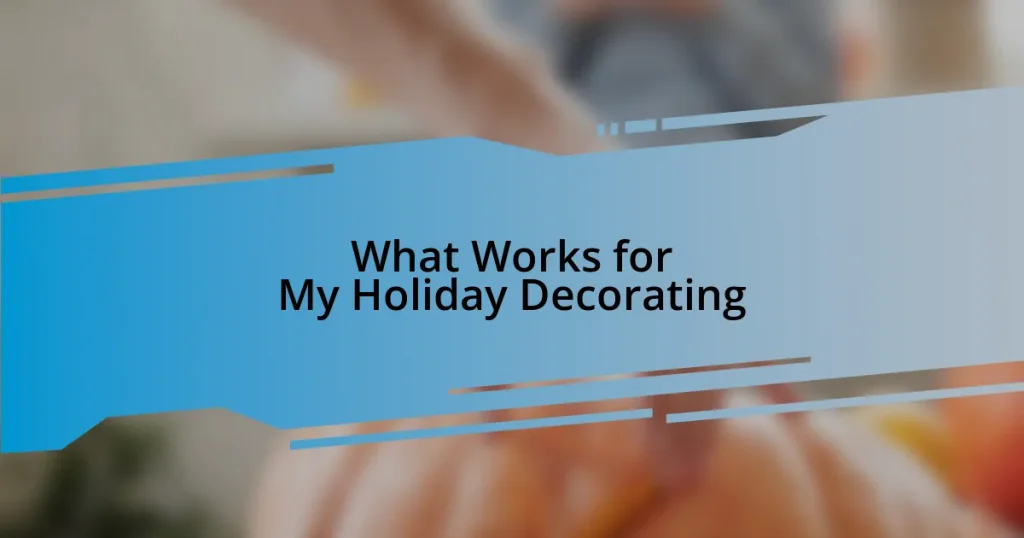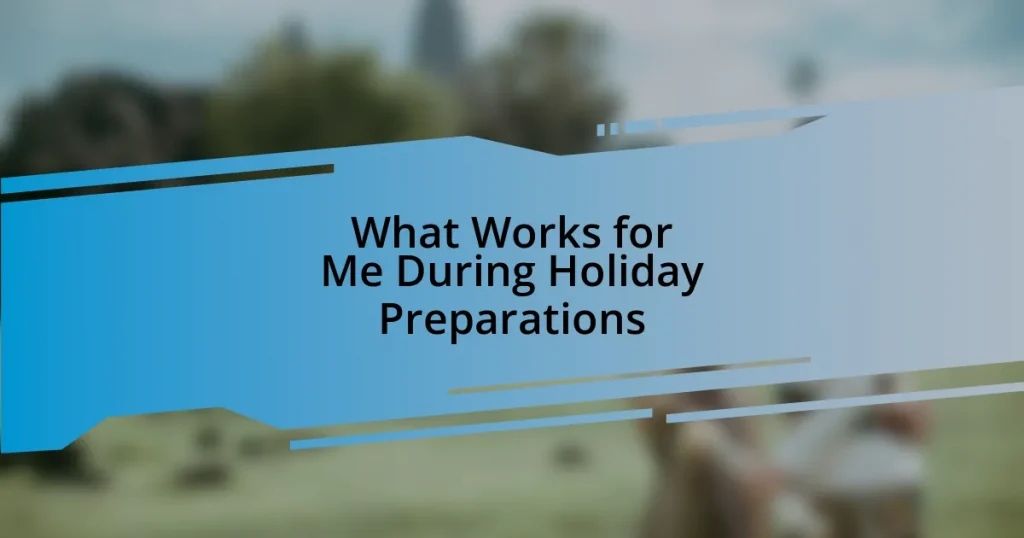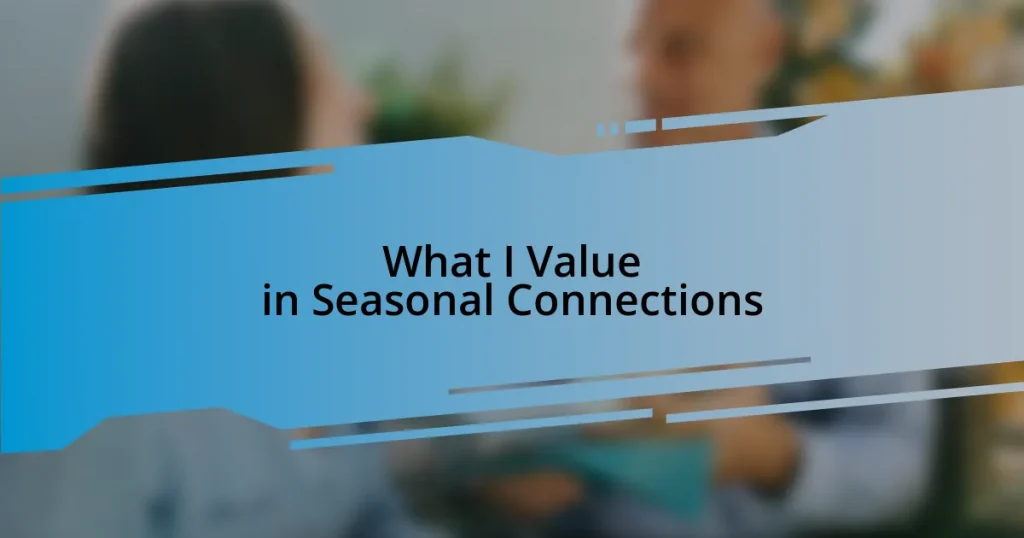Key takeaways:
- Seasonal festivals serve as vibrant expressions of culture, tradition, and community, fostering connections and shared experiences.
- Different types of festivals—spring, summer, autumn, and winter—each evoke unique emotions and cultural significance.
- Personal experiences at festivals highlight the joy of nostalgia, community unity, and the importance of participating and respecting local customs.
- Festivals promote cultural exchange and understanding, allowing individuals to appreciate diversity and build connections through shared celebrations.
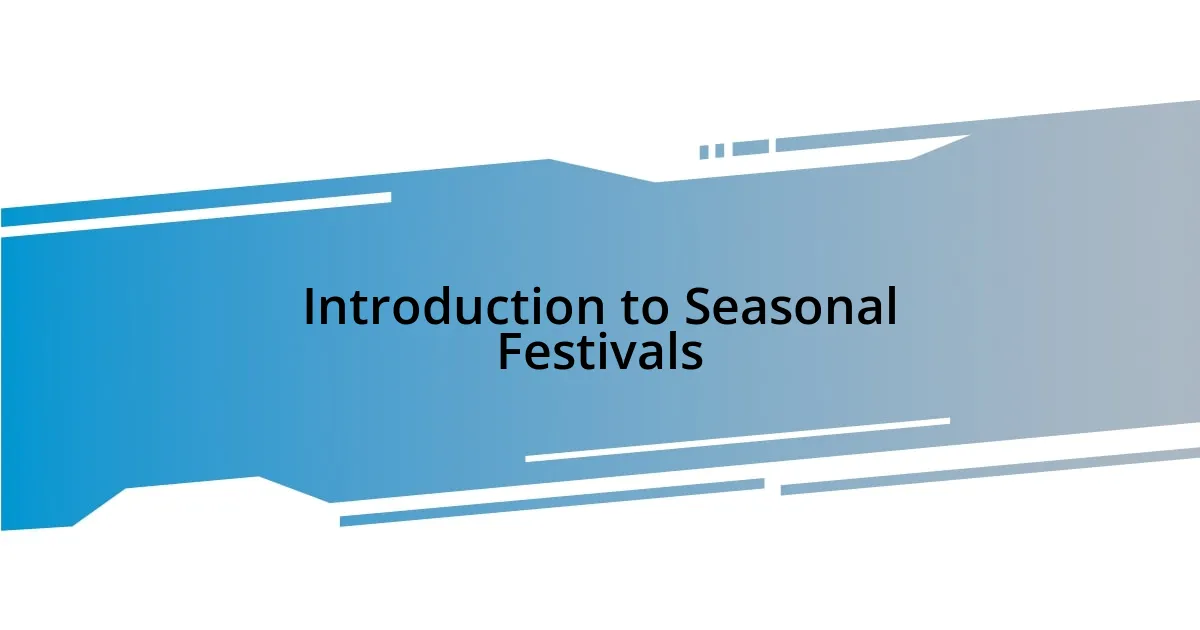
Introduction to Seasonal Festivals
Seasonal festivals are more than just celebrations; they are vibrant expressions of culture, tradition, and community. I remember wandering through a local fall festival, the air filled with the scent of cinnamon and roasted chestnuts. It made me wonder, how do these gatherings shape our connections with one another and with the changing seasons?
When I think of festivals, I can’t help but recall the joy of summer evenings spent at a nearby music festival, dancing with friends as the sun sets. The laughter and music blended together, creating a euphoric atmosphere that felt almost magical. Isn’t it incredible how these events can turn ordinary moments into lasting memories?
For many, these celebrations mark the rhythm of life. Each festival brings its unique flavor, from the bright colors of holi to the solemn reflections of harvest time. Isn’t it fascinating how these seasonal traditions can evoke such a wide range of emotions? Reflecting on my experiences, I realize these festivals do more than celebrate a season; they remind us of the importance of community and the joy of shared experiences.
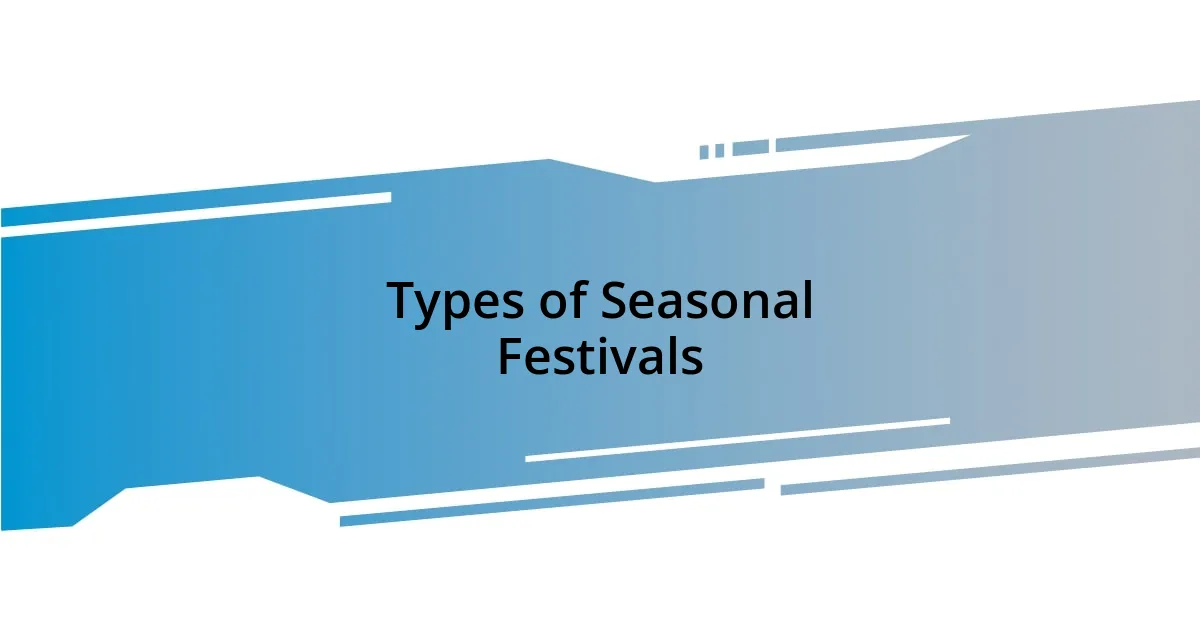
Types of Seasonal Festivals
When considering the types of seasonal festivals, I can’t help but feel a connection to the contrasts they present. From the exuberance of springtime celebrations, like Easter egg hunts that bring families together, to the reflective nature of winter festivals focused on gratitude and renewal, each type has its own significance. I think back to the first time I participated in a cultural festival; it was a truly eye-opening experience, immersing myself in traditions that were new to me and feeling a sense of belonging among strangers.
Here are some common types of seasonal festivals that evoke strong emotions and community spirit:
- Spring Festivals: Celebrate renewal with events like cherry blossom festivals and Easter.
- Summer Festivals: Embrace warmth with music, art, and food festivals, often featuring outdoor gatherings.
- Autumn Festivals: Harvest-themed events, such as pumpkin patches and cider tastings, highlight the bounty of the season.
- Winter Festivals: Emphasize celebration and reflection with holidays like Christmas, Hanukkah, and New Year festivities, often bringing people together in cozy settings.
Each festival reflects both the season and the unique traditions of the community, weaving a rich tapestry of cultural experiences that leave lasting memories.
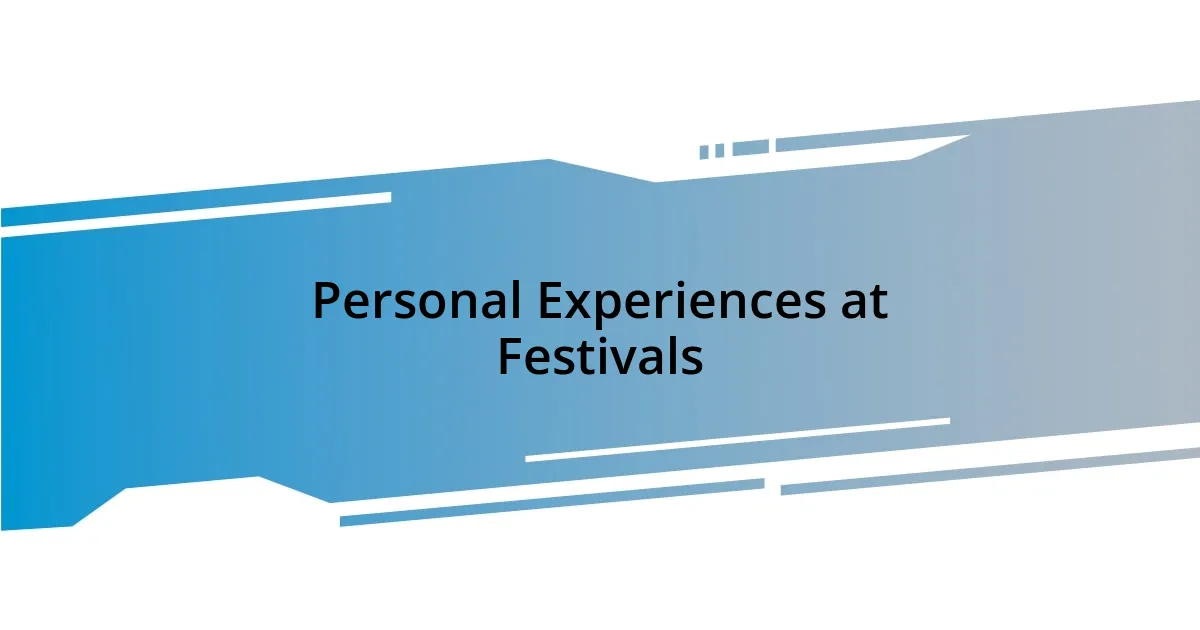
Personal Experiences at Festivals
When I think of personal experiences at festivals, I’m reminded of the time I stumbled upon a local summer fair. The vibrant colors, laughter of children, and enticing food stalls drew me in like a moth to a flame. Striding through the crowd, I grabbed a fresh funnel cake and felt a wave of nostalgia wash over me as I indulged in that sugary treat—it took me back to my childhood, where fairs were the highlight of summer.
Another memory that stands out is the winter holiday market I visited a couple of years ago. The crisp air was alive with the sounds of carolers and the sight of twinkling lights. I found myself lost in conversation with a vendor who crafted handmade ornaments. Sharing stories about our holiday traditions felt like finding a long-lost friend amidst the bustle, a reminder of how these moments can create unexpected connections.
One of the most profound experiences happened during an autumn festival where I witnessed the community come together for a harvest celebration. I joined a group in cider pressing, laughter echoing through the orchard as we squeezed apples into juice. The shared work resonated deeply, fostering a sense of unity that reminded me how festivals often serve as a heartwarming reminder of our shared humanity.
| Festival Type | My Personal Experience |
|---|---|
| Summer Fair | Enjoyed nostalgic funnel cake amidst vibrant colors. |
| Winter Holiday Market | Connected with a vendor over shared holiday traditions. |
| Autumn Harvest Celebration | Fostered unity while cider pressing with the community. |
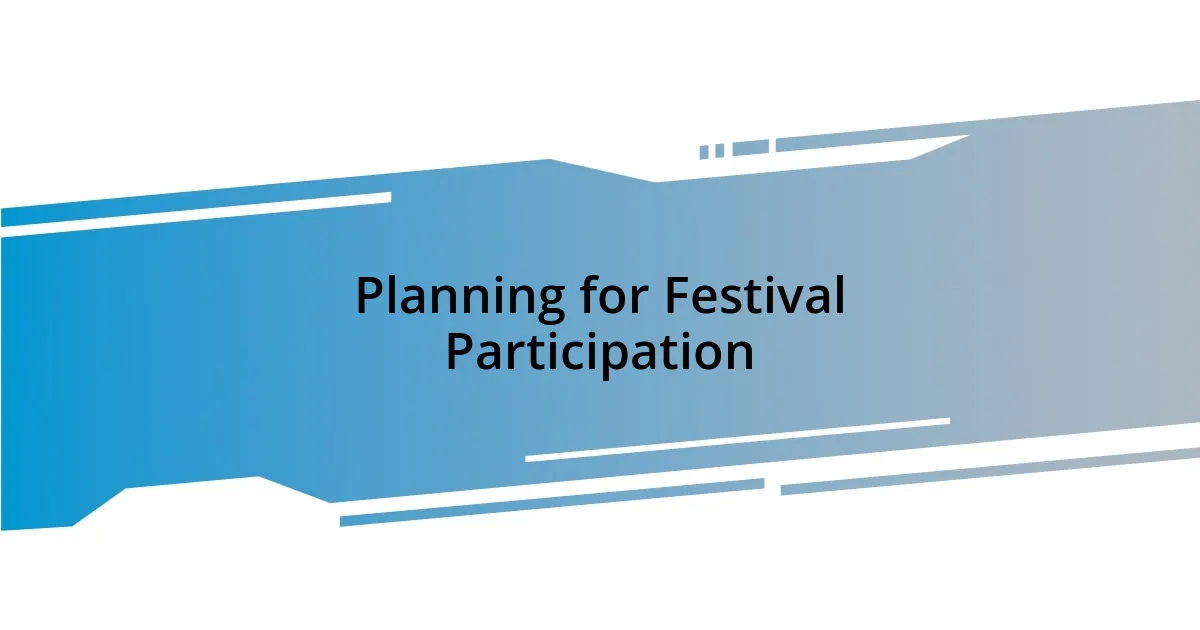
Planning for Festival Participation
Planning for festival participation involves a mix of practical considerations and personal reflections. I remember the first time I joined a spring festival; it was exhilarating yet daunting. What should I wear? How do I get there? I soon learned that comfortable shoes are essential, especially when you’re likely to be on your feet for hours, soaking in all the vibrant sights and sounds.
As I dove deeper into planning, I realized how important it is to research the festival schedule ahead of time. Knowing the key events I wanted to catch helped me navigate the day’s excitement without feeling overwhelmed. I managed to squeeze in everything, from the breathtaking flower displays to the local performances that enchanted the crowd. Isn’t it satisfying when your plans come together seamlessly?
Moreover, understanding the local customs can truly elevate the experience. I found attending a winter festival with a grasp of the traditions behind each activity made me feel more connected to the community. Have you ever participated in a festival and felt like an outsider? It’s disheartening. By taking the time to learn about the customs, I felt welcomed, engaging with others who shared their stories and laughter. That warmth is what makes these events memorable.
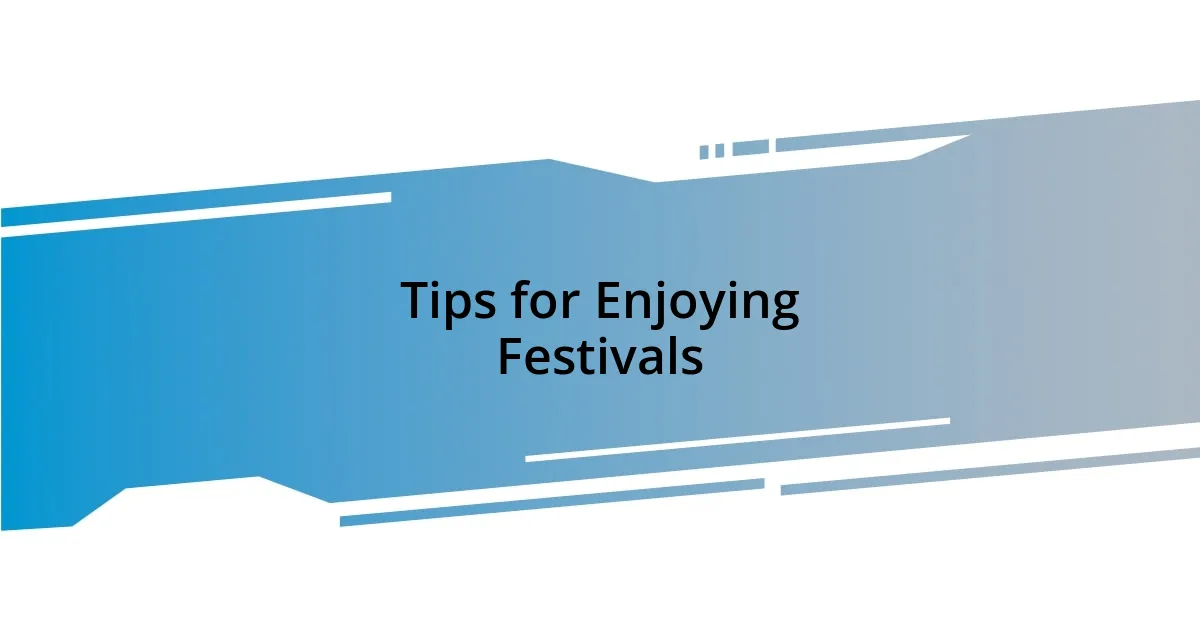
Tips for Enjoying Festivals
I think one of the best tips for enjoying festivals is to immerse yourself in the atmosphere. When I attended a music festival last summer, I decided to leave my phone behind. Without distractions, I could fully embrace the live performances, dance with strangers, and even strike up spontaneous conversations. It was liberating to be present in the moment—have you ever tried this? You might be surprised by how much more you enjoy the experience.
Another thing I’ve learned is to be open to trying new things. During a local food festival, I hesitated at first to taste a dish that was far outside my comfort zone. When I finally took that leap, the flavors surprised me! It turned out to be my favorite dish from the entire festival. Stepping out of your culinary box can lead to delightful surprises. Isn’t it exciting when you discover something wonderful you never expected?
Lastly, I can’t stress enough the importance of going with friends or family. At a recent fall festival, sharing the experience with my best friends added layers of joy to every moment. We laughed together at the corny carnival games, shared our favorite foods, and even participated in a pie-eating contest. Those shared memories transformed the day into something unforgettable. Don’t you think festivals are about creating connections—both with the event and the people you enjoy it with?
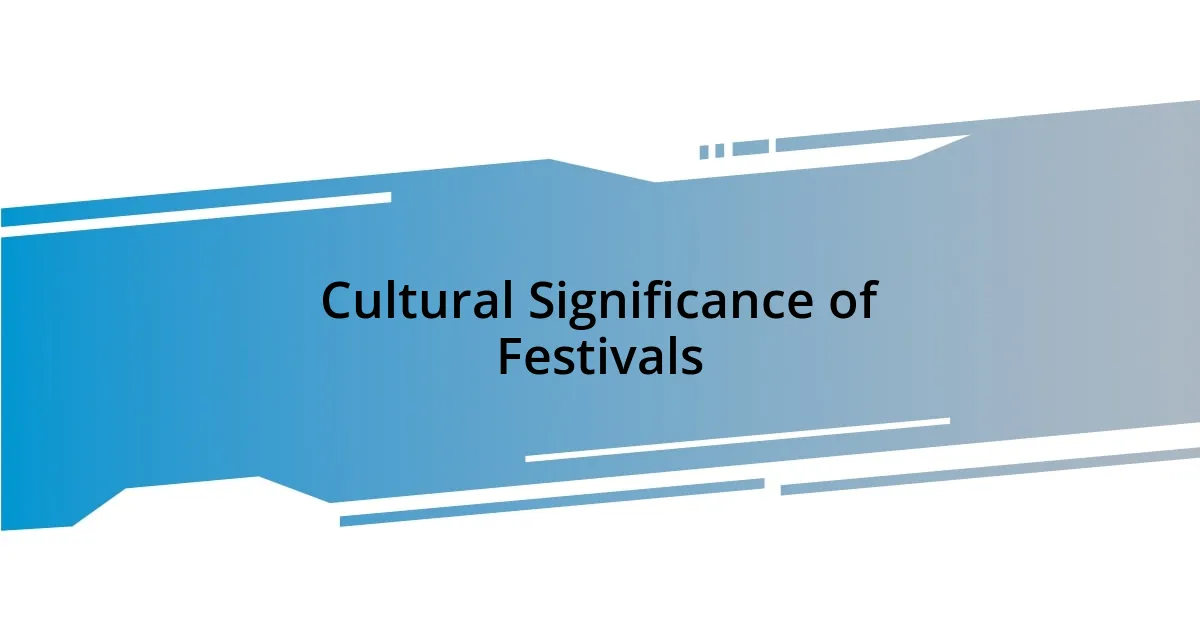
Cultural Significance of Festivals
Festivals are more than just celebrations; they are windows into the traditions and values of a culture. I still remember walking through the vibrant colors of a Diwali festival. The joy and warmth radiated from every corner, creating a sense of togetherness. Have you ever felt that magical connection among people celebrating the same heritage? It’s a profound experience that underscores how festivals foster community spirit and strengthen cultural identity.
Engaging in these events allows us to appreciate the layers of history behind them. For instance, during a harvest festival I attended, I learned about the rituals and practices that have sustained local farmers for generations. It hit me how vital it is to honor those who came before us. This kind of awareness not only deepens our understanding but also enriches our participation. Sharing stories and learning from each other reminds us of our place in a larger narrative. Isn’t it incredible how a single event can teach us so much about the past and present?
Moreover, festivals serve as a platform for cultural exchange, showcasing diversity and unity. I fondly recall the excitement of attending an international festival where different cultures converged. There was a palpable sense of discovery as I tasted cuisines from around the globe and engaged in conversations with people from all walks of life. It’s fascinating how such gatherings can break down barriers and build bridges. How often do we find ourselves caught in our own routines, missing the beauty of diverse experiences? These festivals encourage us to step out and embrace the richness of our world.
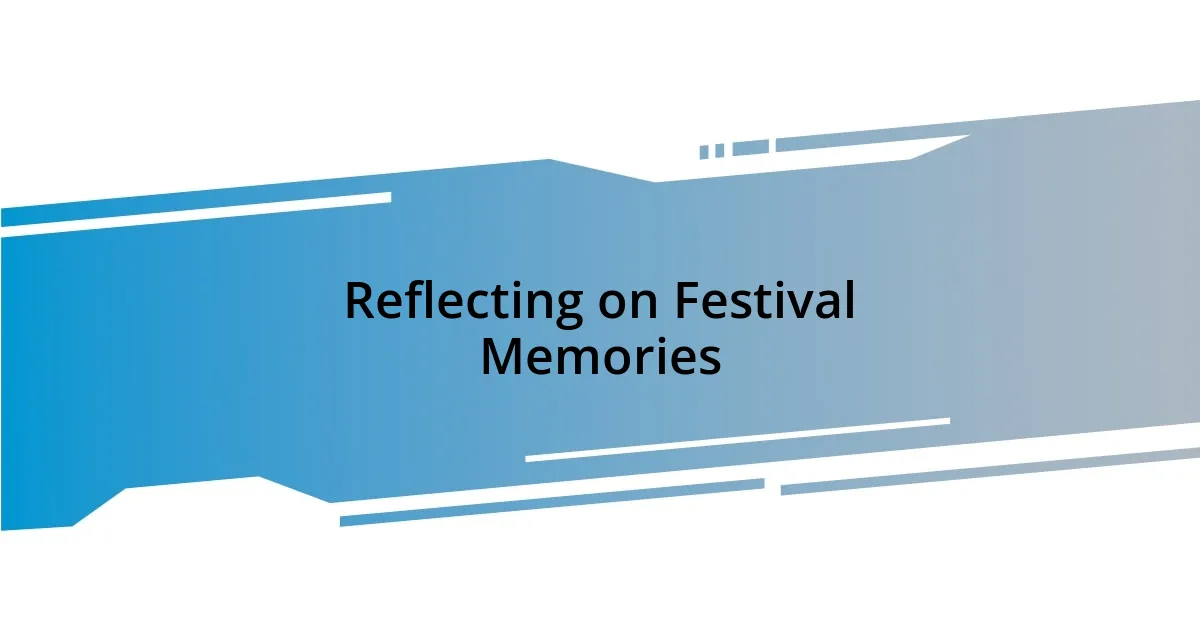
Reflecting on Festival Memories
Reflecting on festival memories often brings a smile to my face. I think back to the time I attended a lantern festival, where the sky illuminated with countless glowing lanterns. There was an unspoken magic in the air as we all released our lanterns into the night. Have you ever shared that moment of awe with a crowd? It connected us in a way that words couldn’t capture.
I also recall the laughter and joy during a winter solstice festival. While sipping warm cider, I was enveloped in the warmth of shared stories and traditions. It became a reminder of the importance of human connection in a fast-paced world. How often do we pause to really appreciate those moments with loved ones? It’s something I cherish deeply.
Interestingly, every festival seems to echo the lessons learned from the last. A few years ago, I found myself at an art festival, marveling at the creativity around me. That day sparked a desire to express my own artistic side. Do you remember a time you felt inspired by the vibrancy of creativity around you? Reflecting on these memories not only brings joy but also fuels the desire to create my own magical moments in the future.


